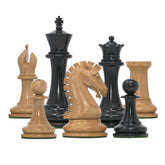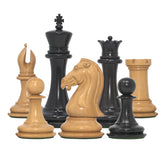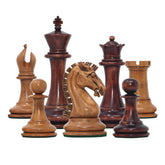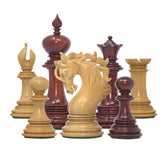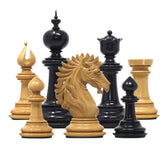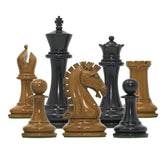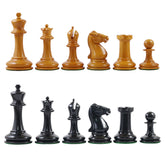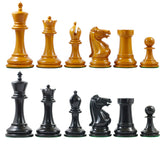IMPACTS OF CHESS ON HUMAN BRAIN
Chess is more than just a game, it involves strategic thinking, foresight, and tactical skills. It has a rich and lavish history, dating back centuries, and is played worldwide by individuals of all ages and skill levels. There are several reasons why chess is considered significant for individuals of all walks of life.Chess is indeed an intelligent game to be played!!
The timeless nature of chess lies in its ability to provide thoughtful challenges and enjoyment, making it a beloved and permanent pastime. Chess holds importance for everyone, transcending age, background, and skill level.
Chess, also known as 'The Cerebral Game,' is not just for the genius Grandmasters but also for every human being. Anyone can play or learn Chess. Chess has a universal appeal, attracting millions of players worldwide who seek mental invigoration and intellectual challenges. The game's appeal goes beyond the victories of famous players like Fischer, Kasparov, and Carlsen, reaching enthusiasts from New Zealand to California and Norway to South Africa.
SOME KEY ELEMENTS OF CHESS

The chessboard consists of 64 squares arranged in an 8x8 grid. Each player has a set of 16 pieces: one king, one queen, two rooks, two knights, two bishops, and eight pawns. The pieces are arranged on the first two rows or ranks of the board.
The King moves one square in any direction.
The Queen moves horizontally, vertically, or diagonally any number of squares.
The Rook moves horizontally or vertically any number of squares.
The Bishop moves diagonally any number of squares.
The Knight moves in an "L" shape: two squares in one direction and one square perpendicular to that.
The Pawn moves forward one square but captures diagonally. Pawns have an exclusive initial double-move option and can be promoted to any other piece upon reaching the eighth rank. The first and main goal is to checkmate the opponent's king. This happens when the king is in a position to be captured, and there is no legal move to escape check. A special move involving the king and one of the rooks. It allows the king to move two squares toward the rook, and the rook moves to the square next to the king. A pawn capture that can happen when a pawn advances two squares from its starting position and lands beside an opponent's pawn. The opponent can capture the pawn as if it had moved only one square forward. If a player has no valid moves and their king is not in check, the game ends in a stalemate,which results in a draw. Other draw schemes include insufficient material to checkmate, threefold repetition, and the fifty-move rule which is when 50 consecutive moves are made by both players without a pawn move or any kind of capture.
The biggest Chess Notation is when a system is used to record moves on the chessboard, allowing players to review or recreate games.

Here are the best six important and powerful effects of playing chess on the human brain:
UNIVERSAL DEMAND
Chess has become a global passion, engaging people, making friends from various corners of the world. It's more than a game for geniuses. It's a rewarding pursuance for anyone who badly needs mental stimulation and intellectual, mind and brain challenges. The excitement of the game has crossed borders, making it a world wide activity enjoyed by people of all ages and backgrounds.
INTELLECTUAL IMPROVEMENT
Chess is absolutely not for those with superior intellect.
It aids in the enhancement of cognitive abilities for average people. Unlike many other activities, chess uniquely stimulates both left-brained analytical thinking and right-brained creative problem-solving. Studies show that introducing children to chess at a young age significantly enhances their fine motor skills, logical thinking, cognitive abilities, and overall life skills compared to their non-chess-playing peers. So, why wait, introduce chess to your childrens now.
Dr. Stuart Margulies in 1991 stated in his research that it improved reading abilities among children from less privileged backgrounds in New York City after engaging in chess over six to twelve months. Another study in Venezuela showed a substantial increase in IQ scores among 4,000 students just four months after learning and regularly playing chess.Chess really works for children, adults and aged people.

MAKES THE DECISION STRONG
Chess involves strategic, intellectual thinking and critical decision-making, impacting the prefrontal cortex, the brain region responsible for these activities. Regular engagement in chess helps individuals of all ages develop foresight and make better decisions in various aspects of life, both immediate and long-term.
COGNITIVE ADVANCEMENT
Observational studies on test subjects consistently show that chess has a positive impact on cognitive development. It particularly depends among younger age groups. Clinical studies show that chess has a beneficial neurological effect on the brain. Brain scans of individuals taught and regularly playing chess reveal increased dendrite growth, enhancing connectivity between neurons and, consequently, superior cognitive skills.
CHESS AS A THERAPY
The cognitive benefits of chess are recognized in the medical field, making it an integral part of therapy for patients recovering from brain damage due to accidents, strokes, or conditions like CTE, PTSD, and Alzheimer's Disease. Chess also has a calming and relaxing effect on individuals who are dealing with nervous anxiety or schizophrenia.Chess surely works as a wonderful therapy.
SUITABLE OF OUR TIMES
With origins back to dates in ancient India and China,chess was played as a strategic exercise for the elite in preparation for warfare, chess boasts a rich heritage. Despite its ancient roots, chess remains permanent in contemporary times. Its universal appeal contributes to the psychological well-being of today's generation and the intellectual development of future generations' pursuit.

IN CONCLUSION
The effects of playing chess on the human brain go beyond the board. It certainly helps a person to think wisely, logically and reasonably. From intellectual improvement, be it to enhance decision-making and cognitive development, Chess offers unlimited benefits that make it a valuable activity for individuals of all ages and backgrounds. As a remedial tool and a timeless game, chess continues to leave a lasting impact on the minds of every individual. A person who is engaged in its strategic and intellectually stimulating challenges really can do wonders in their lives.
For more interesting articles, luxury and all types of chess sets visit www.stautoncastle.com
For more interesting articles visit : www.stauntoncastle.com
Buy Wooden Chess Sets and Pieces : www.stauntoncastle.com
Sample Block Quote
Sample Paragraph Text
- 7 THINGS TO KNOW BEFORE PLAYING FIRST CHESS TOURNAMENT
- 7 TYPES OF DRAWS IN CHESS THAT YOU SHOULD KNOW
- amazing facts about chess
- ART OF SECURING CHESS VICTORY IN THREE MOVES
- basic rule of chess
- basic rules of chess game
- beginner to pro in chess game
- benefit of playing chess
- benefits of chess game
- Best 10 Chess Opening Books
- best benefit of chess game
- best chess clock
- best chess clock features
- BEST ONLINE CHESS CLASSES AND COURSES
- best position in chess
- buy chess clock
- buy chess pieces
- buy chess set
- chess
- CHESS BEGINNER TO A PRO-LEVEL
- chess book
- Chess buy guide
- chess class
- chess classes
- IMPACTS OF CHESS ON HUMAN BRAIN
